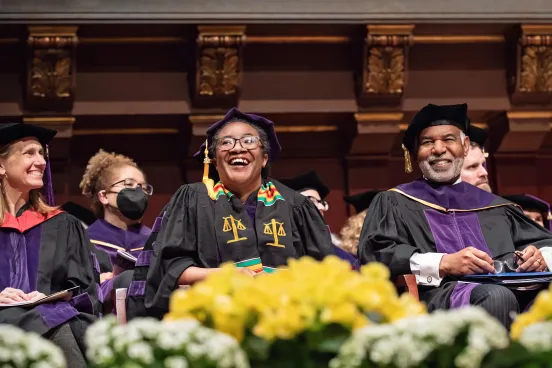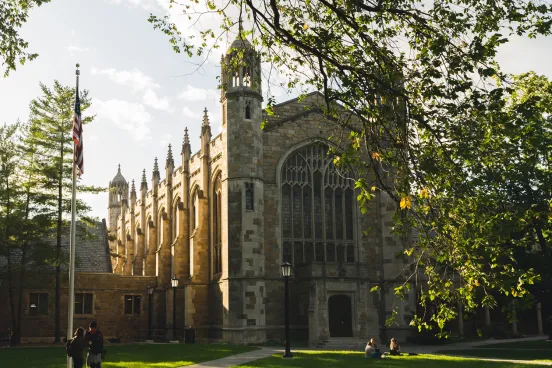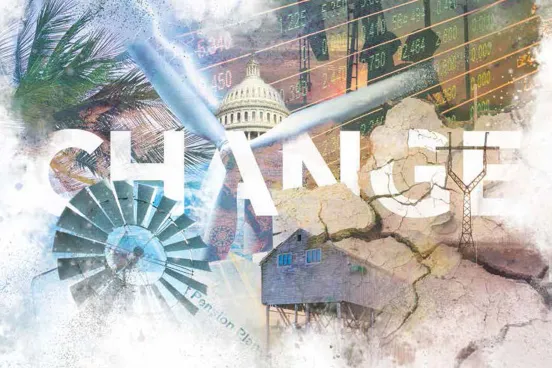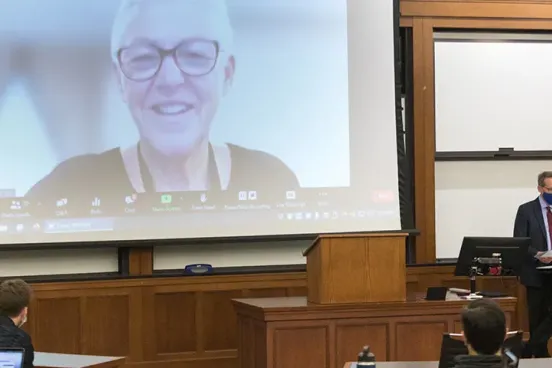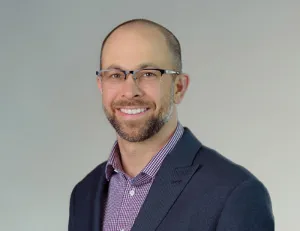
It was only as he sat in Paris at the 2015 United Nations Climate Change Conference of Parties (COP21) that Jesse Medlong realized he might be an environmental lawyer.
The commercial litigator was there to represent a client on a pro bono matter. The client just happened to be Georgia, a developing nation vying to make its voice heard among the global heavyweights.
“The partner there with me suggested that it didn’t make sense for me to do such high-profile, big-cache pro bono work in the environmental space without being an environmental lawyer,” recalls Medlong, ’13. “That’s when my practice began to pivot.”
When Medlong joined DLA Piper as a junior litigation associate, he received the firmwide Krantz Fellowship, enabling him to work solely on pro bono matters for his first year. Early on, he volunteered through New Perimeter, the firm’s nonprofit affiliate focused on global pro bono, to be part of a team representing Georgia in global talks to address climate change.
His ongoing representation of Georgia is a cornerstone of his environmental law practice that also includes advising nonprofits and multinational corporations. In addition, Medlong has built a specialization in pesticides and antimicrobials, a practice that gained significant traction as COVID-19 spread.
Representing Georgia, though, is especially meaningful to him. Medlong is proud of the outcomes he has helped achieve and his resulting growth as a lawyer. Also, the multilateral nature of the work harks back to his interest in international law, born in his days traveling the world in the US Navy and strengthened during his semester in Geneva through Michigan Law’s externship program.
“When I joined a Big Law firm, I assumed I was kissing that interest goodbye,” Medlong says. “And as a guy who wears his values on his sleeve, representing Georgia gets at my basic passion for justice being served.”
If you think of COP as a school cafeteria, Georgia at COP21 in Paris was one of those standing alone with their tray of lunch, hoping someone would invite them to join their table.
“Usually, there are at least a half dozen negotiations running at any given time, so for countries who aren’t part of a group with similarly aligned interests, it’s impossible to know about all of the conversations happening,” Medlong explains. He and his DLA Piper colleagues negotiated on Georgia’s behalf to make it a part of the Environmental Integrity Group (EIG), an eclectic collection of six countries from whose membership “Georgia has benefited tremendously,” Medlong says. “Our delegation is now engaged at all levels of the process.”
So much so that at COP26 in Glasgow in 2021, Medlong helped Georgia propose an agenda item to guarantee geographical representation within constituted bodies under the United Nations Framework Convention on Climate Change.
“Constituted bodies are the mechanisms by which things get done, and some of them were constituted in a way that discriminated against the developing countries of Europe,” Medlong says.
In addition to the agenda item, Medlong and his team took steps to address other issues that had negatively affected Georgia, related to the convention’s technology mechanism and the composition of the consultative group of experts advising developing countries on their reporting obligations.
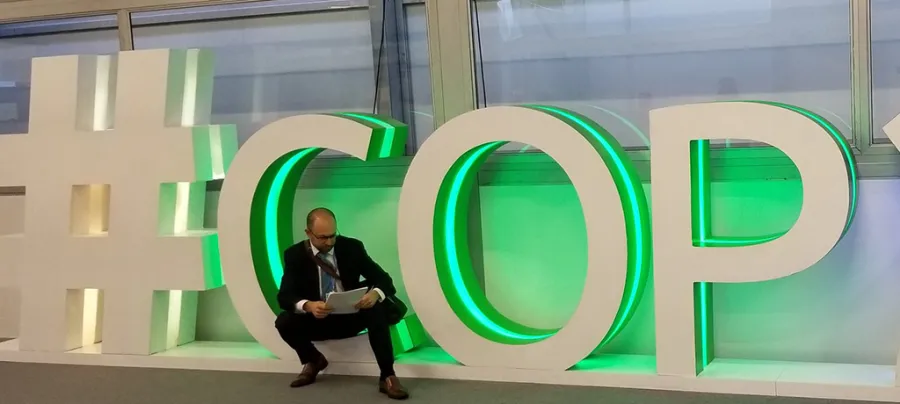
“Our success at COP26 was the result of years of strategic planning. We were thrilled and, more importantly, our client was thrilled,” Medlong says.
Beyond his work with Georgia, Medlong has embraced his environmental law practice, pleased that his clients largely seek him out because they want to comply with environmental laws, not because they need damage control. That said, disputes arise. “Sometimes a plaintiff’s just wrong on the law, and sometimes there’s a gray zone where we don’t know what the state of the law is,” Medlong says. “I look at how we can center the stakeholders so that we don’t give everything away, but so that we also understand that addressing this problem is helping to address longer-term risk, too.”
Medlong focuses especially on the environmental, social, and governance (ESG) aspects of environmental law, as well as counseling clients on how to meet their ESG commitments. In 2019, DLA Piper tapped Medlong to assist in their efforts to roll out a client-facing offering around sustainability and ESG. “I had dreamed of how we could find new ways to give our clients the tools to be better. I spent three years collaborating with my colleagues to build exactly that,” Medlong says.
The work puts Medlong and his firm on the cutting edge of emerging legal issues—from monitor disclosure regimes around climate change and biodiversity to how to achieve the goals of the Paris Agreement if companies use offsets and credits as part of an emissions strategy. “How do businesses govern, plan for, and communicate material, financial, and other risks associated with climate change and the loss of biodiversity? As a profession and a firm, we’re pioneering this area of the law,” Medlong says.
The common thread connecting his clients, he adds, is that each plays a part in addressing the climate crisis: “While we need bold policy and we need governments to act, we absolutely need companies like my clients to be on board. My practice focuses on solutions on a global scale, as well as within individual companies, and I love that.”
Editor’s Note: Medlong again represented Georgia at COP27, which took place in Egypt in November 2022. The summit resulted in a historic decision to establish and operationalize a loss and damage fund, particularly for nations most vulnerable to the climate crisis.
“This was a long time coming,” said Medlong. “It remains to be seen whether the new fund is up to the task. Developing countries have fought hard for the fund and will now have to fight hard to make it effective.”



